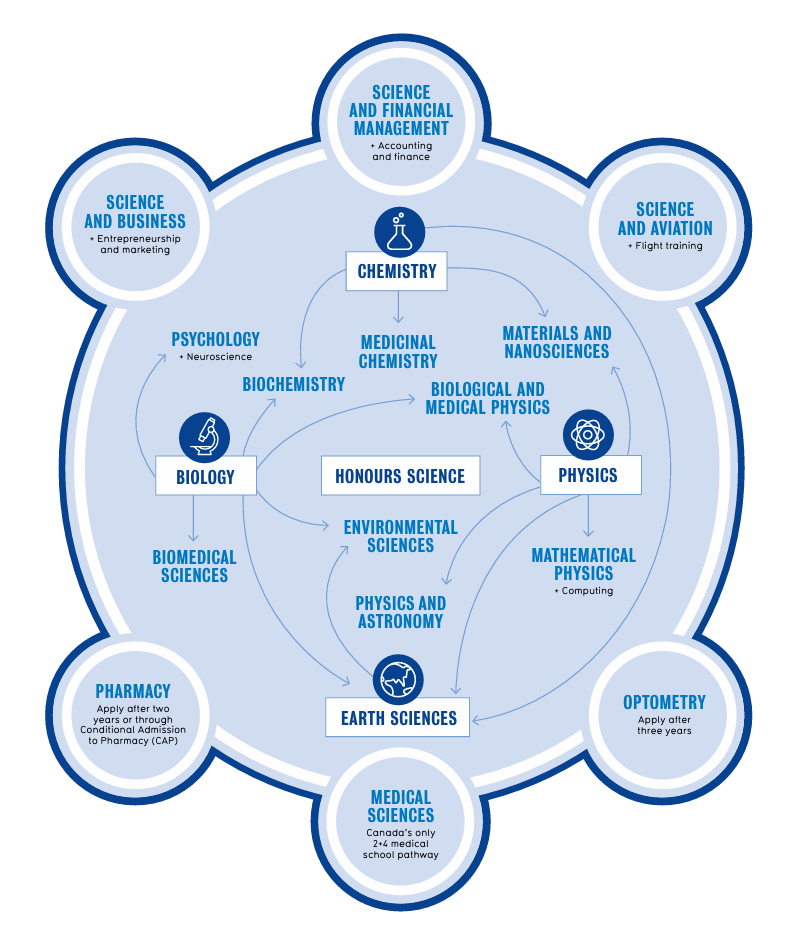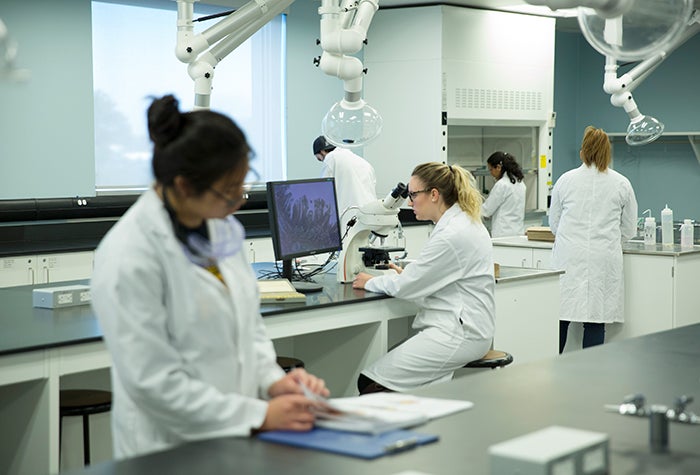Written by Jocelyn (she/her), student
"Is the scientist’s life for me?" That’s a question I asked myself just over four years ago when I was deciding what to study.
In high school, I really enjoyed Chemistry and Physics and I couldn’t decide between the two. Then I came upon my major, Materials and Nanosciences (MNS), which combines both chemistry and physics and could be applied to many different fields (like nanomedicine, semiconductors, solar energy, and so on), so I decided to try it out.
Since then I’ve really enjoyed my courses and all of my co-op experiences, so I know that I’ve made the right choice.
What makes a scientist?
Science is all around us and is so influential in our everyday lives. Not everyone goes on to become an astronaut or the person who cures a disease, but even small scientific contributions moves mankind forward.
Scientists love investigating and asking why: Why did my experiment fail or succeed? Why did this happen? They love learning about the small details AND the cool theories. They want to discover things so that people can use that knowledge to implement it into new technology or other uses.
If you’re a curious person who wants to understand why things work the way that they do, then you would likely be an awesome scientist.
So, what’s so special about Waterloo Science?
Specialize right away
At Waterloo, we don’t have a general first year, so you get to study what you love right away. If you’re a biology major, there’s no need to study calculus, or if you're a physics major you don't have to take cell biology.
If you’re unsure what you want to major in, it’s possible to switch your major after a term and often you won’t have very many courses to catch up on. Another option is majoring in Honours Science, which gives your degree a lot of flexibility.
Check out this video that some of my fellow Science Ambassadors created. It shows the 17 different programs offered by the Faculty of Science, and is a great way to find out which one appeals to you!

Own your ideas
Here at Waterloo, we have an intellectual property policy that says if you have an idea, it’s 100% yours. Waterloo also loves helping students make their ideas a reality. You can get an entrepreneurship minor or found a start-up with support from Velocity, Waterloo business incubator.
Customize your degree
Your science degree is customisable in many ways. You can add a minor, be a part of the co-op program, or participate in the EDGE certificate program. You can also add the Bioinformatics option, which is available for all science students. If you are a Biology or Biomedical Sciences major, you can also get the Biotechnology Technician Diploma from Conestoga College.
Conduct research on campus
Whether you’re in the regular or co-op program, there are many chances to conduct research on campus. Professors hire many students through the co-op, work-study and EDGE programs to work in their group or lab. Professors and graduate students love to teach undergraduate students while getting help with their research.
In fourth year, many students complete an eight-month research project in a professor’s lab. During my second co-op, I worked in a lab on campus and it was very valuable because I got to see what it was like working in a research setting — and I even co-authored a paper during my time there!
Get involved
As a science student, there are many opportunities to volunteer your time and get involved in the science community. There’s Orientation Week, Science Society, Science Ambassadors, Science Outreach (with the Let’s Talk Science program), and seven departmental clubs. The clubs run a lot of events like study sessions, movie nights, and Student-Prof Night (where you can meet professors and other students in a casual setting), all of which are a great way to meet other science students!

All in all, if you love doing experiments, want to contribute to some cool new research, and want different ways to get involved, Waterloo Science is definitely the place for you!
Learn more about the Faculty of Science and its programs.
Related articles

When it’s actually rocket science
Just like everybody else, Harmohit was excited to start university. And just like so many, he found that first week overwhelming. He was new to the university campus. He was new to residence. And he was new to Canada.

Discovering what it means to "think like a physicist"
Beyond pursuing a subject that interests you, choosing what to study at university is about developing your worldview. For Aishwarya (Aish), a recent graduate from the Faculty of Science, his studies have cultivated an analytical mindset — and a world of possibilities.

Labs – your next-level playground
What makes a scientist a scientist? Some could argue it’s the breadth of knowledge on how the natural world works or achieving expertise in a specific area of study — but many would agree that laboratories (AKA labs) are what propel you from student to scientist.

